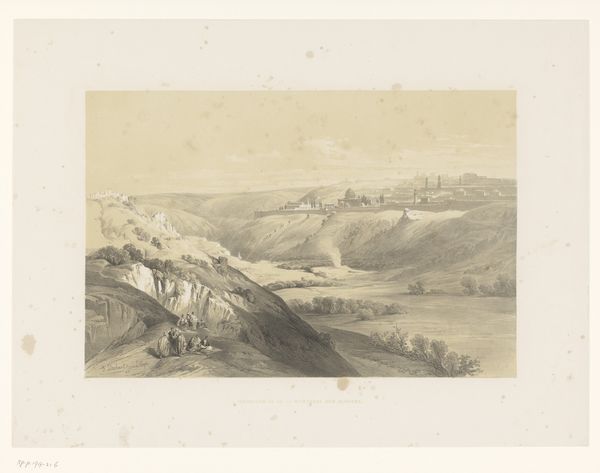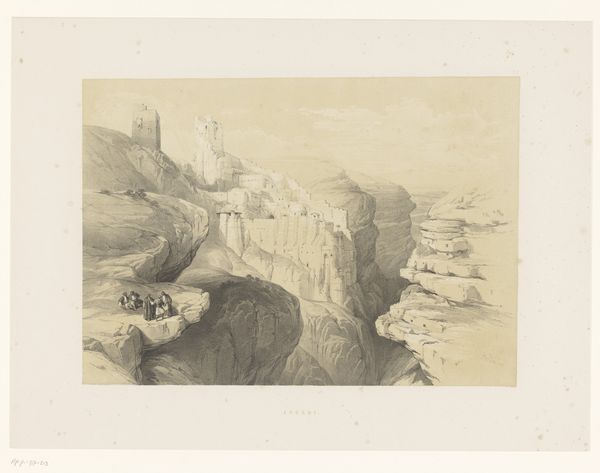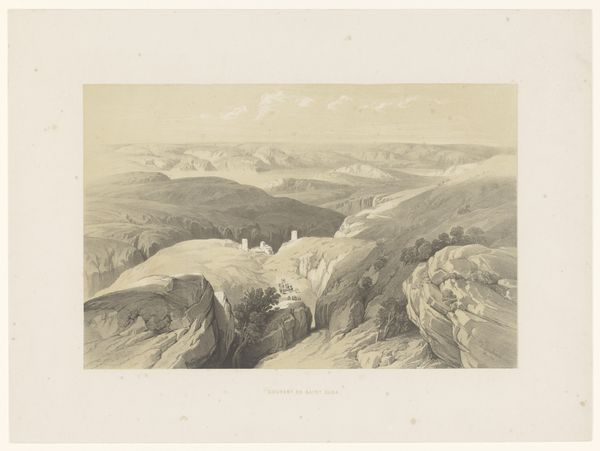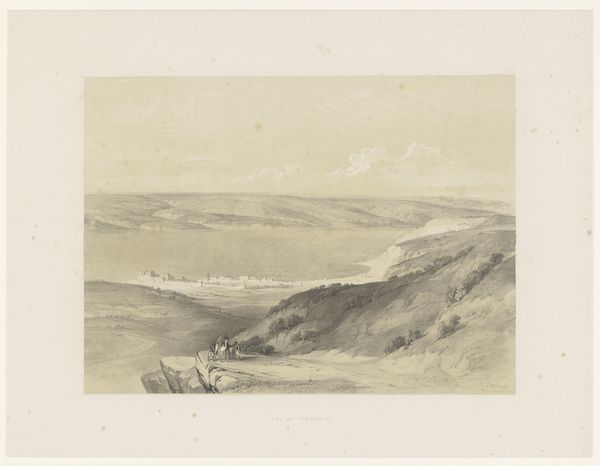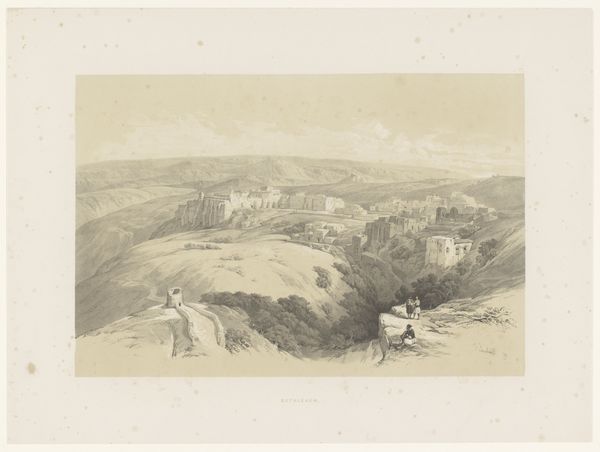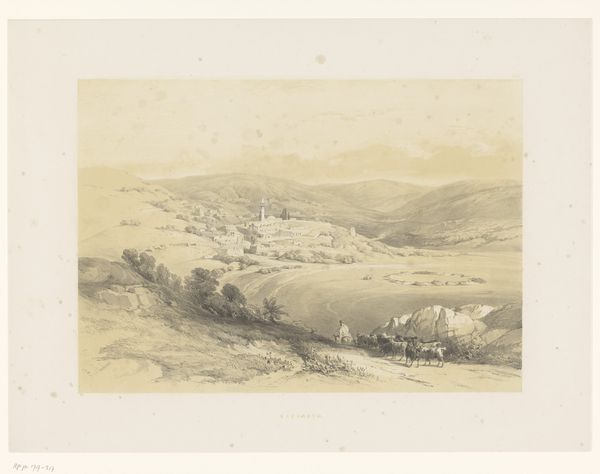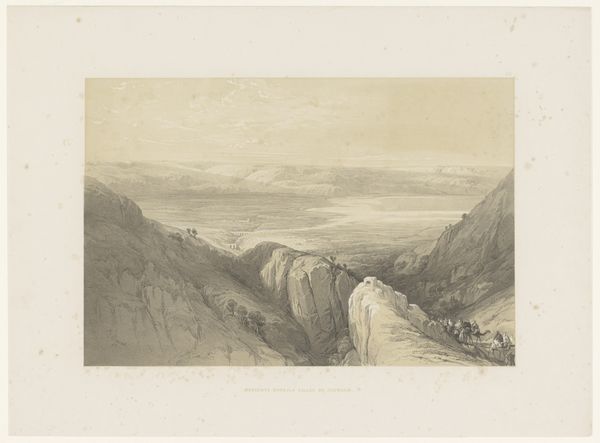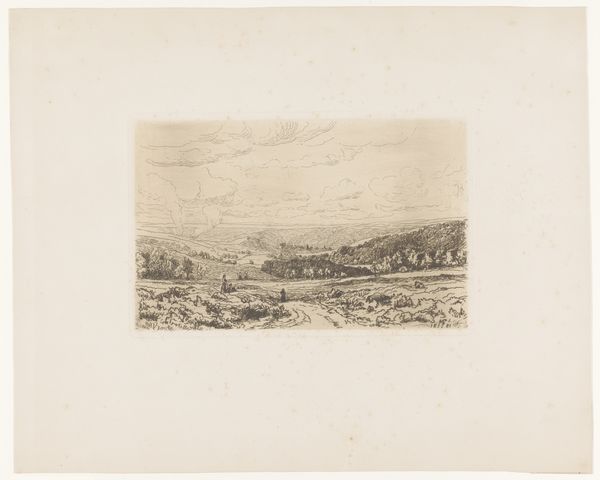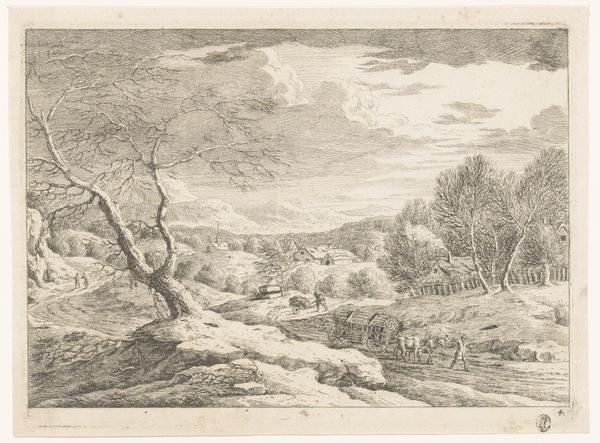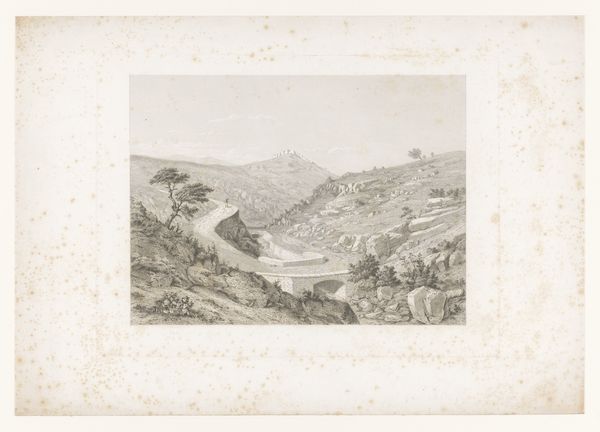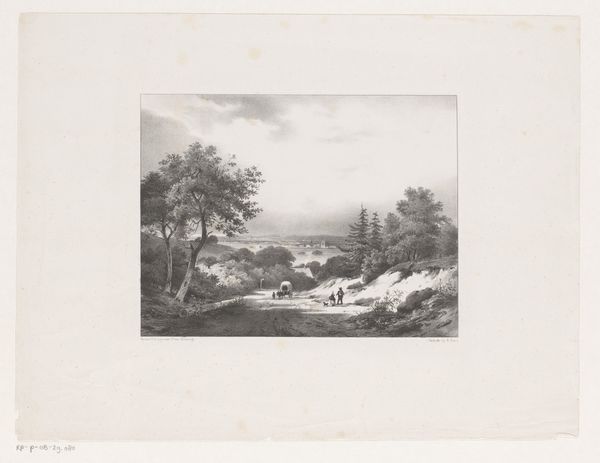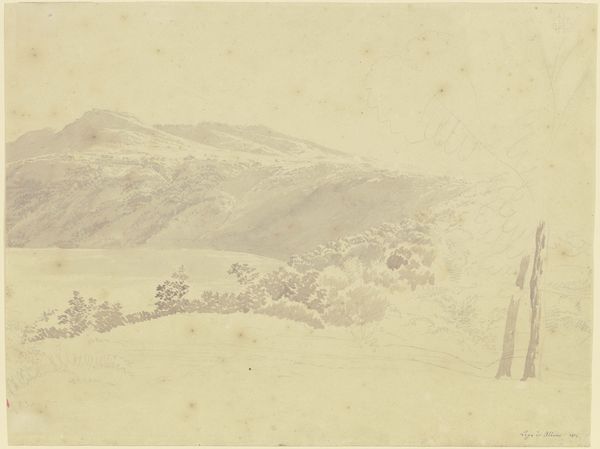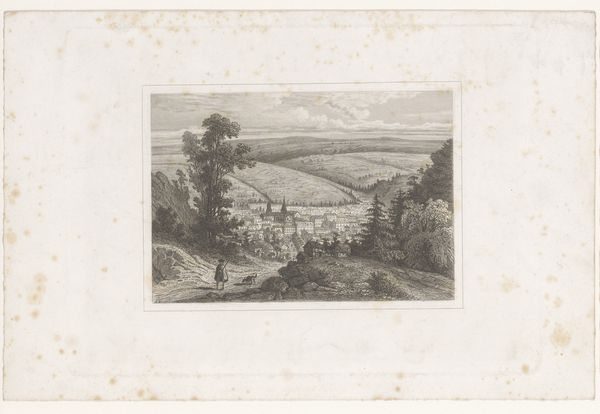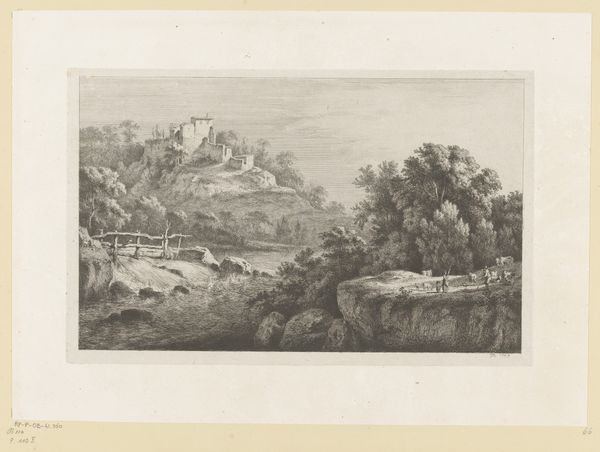
drawing, print, pencil
#
pencil drawn
#
drawing
#
light pencil work
# print
#
pencil sketch
#
landscape
#
mountain
#
pencil
#
cityscape
#
pencil work
#
realism
Dimensions: height 394 mm, width 534 mm
Copyright: Rijks Museum: Open Domain
François Stroobant’s drawing captures Jerusalem from Bethany, presenting a muted palette that belies its symbolic richness. The city, perched atop the hills, evokes a sense of both promise and isolation, themes deeply rooted in its religious history. Consider the recurring motif of the elevated city throughout art history. From ancient Mesopotamian ziggurats to Renaissance depictions of the New Jerusalem, the city on a hill symbolizes spiritual aspiration. Yet, there is also a psychological tension, the height suggesting both a striving for the divine and a vulnerability, exposed to scrutiny and potential fall. In Stroobant's view, Jerusalem appears almost mirage-like, its physical presence softened by the artist's hand. This ethereal quality invites us to consider the city not merely as a geographical location, but as a repository of collective memory and yearning. The depiction engages our subconscious, tapping into a shared cultural understanding of Jerusalem as a beacon of hope and a site of profound emotional significance. The enduring image of Jerusalem continues to resurface, each time colored by the prevailing cultural and psychological landscape.
Comments
No comments
Be the first to comment and join the conversation on the ultimate creative platform.
